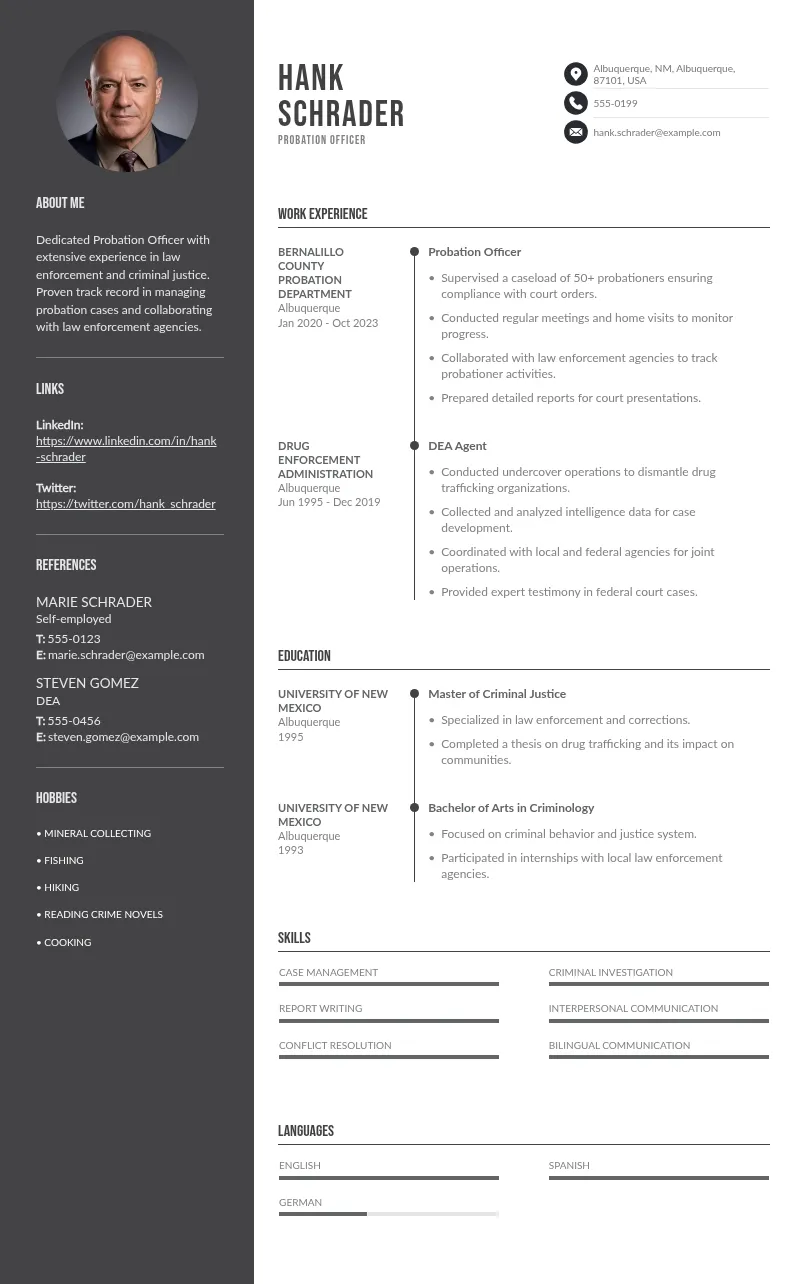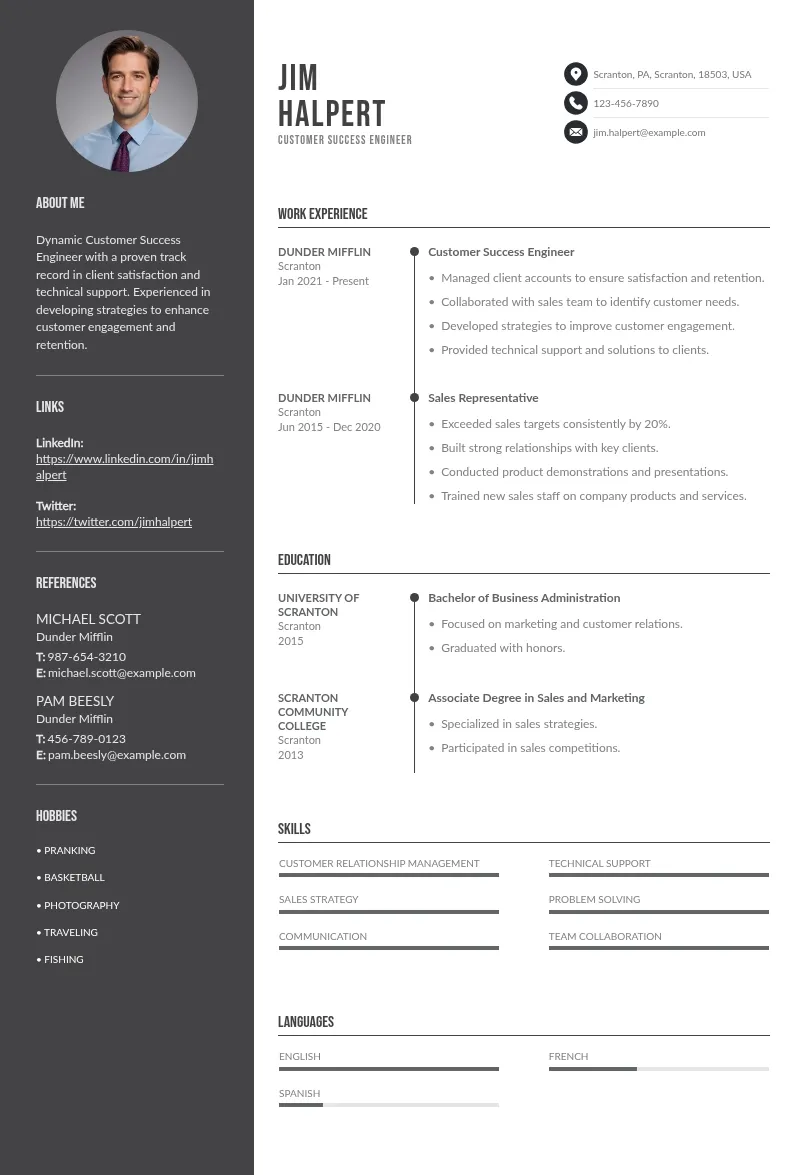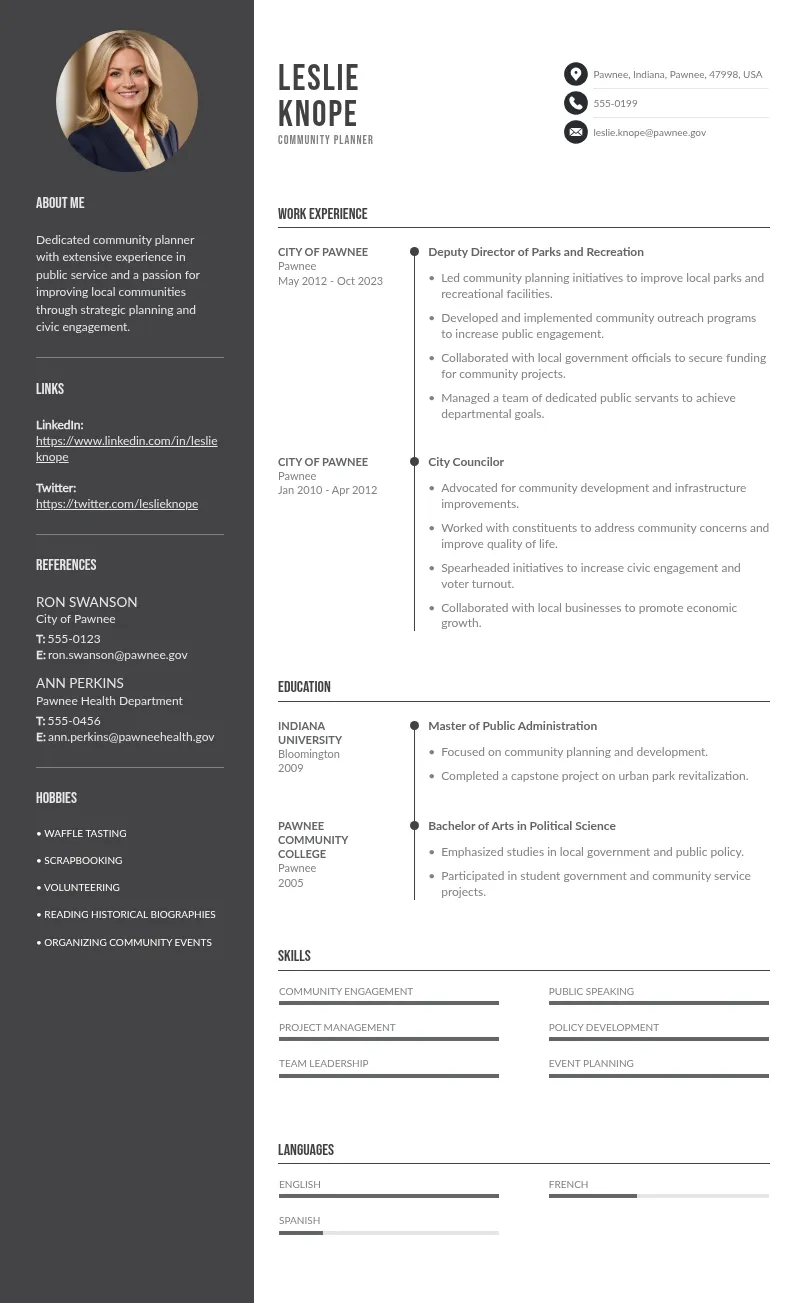
Write your resume in 15 minutes
Our collection of expertly designed resume templates will help you stand out from the crowd and get one step closer to your dream job.


To truly stand out, it’s essential to swap out “worked” for stronger, more specific action verbs that highlight your skills and contributions. This not only sharpens your resume but also gives employers a clear sense of the value you bring to the table. Let’s explore how you can make that shift effectively.

Top Synonyms for "Worked" on a Resume
Using "worked" on your resume is similar to wearing the same outfit to every occasion. It gets the job done but doesn't make a memorable impression. By replacing it with more specific, action-oriented verbs, you can make your experience stand out. Here are some powerful alternatives that will significantly enhance your resume’s impact:
- Achieved
- Accomplished
- Executed
- Managed
- Performed
- Collaborated
- Coordinated
- Implemented
- Resolved
- Contributed
- Oversaw
- Directed
- Facilitated
- Spearheaded
- Advanced

Replacing 'Worked' with Actionable Examples
Replacing "worked" with action-packed verbs can instantly transform your resume, giving potential employers a clearer picture of your skills. These verbs emphasize leadership, teamwork, and the specific results you’ve achieved in your roles.
Let’s break down the alternatives and why each switch improves your experience.
1. Replacing "Worked" with Achieved
- Before: Worked on improving customer satisfaction by streamlining the complaint resolution process.
- After: Achieved a 30% increase in customer satisfaction by streamlining the complaint resolution process, improving response times, and implementing feedback-driven solutions.
Why this works:
By using "achieved," you're emphasizing a result rather than just the process. This shift focuses on the successful completion of your tasks and highlights the tangible benefits you delivered. Numbers, such as the 30% increase in customer satisfaction, reinforce your impact.
2. Replacing "Worked" with Accomplished
- Before: Worked on the roll-out of a new CRM system across the company.
- After: Accomplished the roll-out of a new CRM system, resulting in a 15% boost in team efficiency and smoother client onboarding across departments.
Why this works:
"Accomplished" is perfect for showcasing major milestones. It highlights your ability to take charge of significant tasks and see them through to completion. Mentioning the CRM system and the specific improvements achieved adds weight to your contribution.
3. Replacing "Worked" with Executed
- Before: Worked on a strategic marketing initiative as part of the project team.
- After: Executed a strategic marketing initiative as a project manager, leading to a 20% increase in brand awareness and better engagement across social media platforms.
Why this works:
"Executed" suggests that you played an active role in carrying out important strategies. It shows that you were instrumental in leading teams to meet business goals, and including a quantifiable result like a 20% increase reinforces your leadership.

4. Replacing "Worked" with Managed
- Before: Worked on day-to-day office operations as part of the admin team.
- After: Managed day-to-day office operations as an administrative assistant, ensuring the smooth operation of staff schedules, project deadlines, and vendor contracts.
Why this works:
"Managed" clearly demonstrates your leadership abilities and organizational skills. This verb signals that you were responsible for overseeing both people and processes, ensuring smooth operation despite challenges like tight deadlines.
5. Replacing "Worked" with Performed
- Before: Worked on market analysis to refine the product line.
- After: Performed detailed market analysis that contributed to refining the product line, driving a 10% increase in sales through more targeted campaigns.
Why this works:
"Performed" shows that you carried out specific tasks or analyses. When paired with measurable outcomes like a sales boost, it conveys that your work had a direct impact on business performance.
6. Replacing "Worked" with Collaborated
- Before: Worked with teams to improve the hiring process.
- After: Collaborated with cross-functional teams as a recruiting coordinator to improve hiring processes, reducing time-to-fill by 25% and enhancing interpersonal skills across departments.
Why this works:
"Collaborated" signals that you were a key player in team efforts, working with others to achieve a common goal. It shows that you can communicate effectively and contribute to cross-functional initiatives.

7. Replacing "Worked" with Coordinated
- Before: Worked on logistics for a nationwide marketing campaign.
- After: Coordinated logistics for a nationwide marketing campaign, ensuring the smooth operation of multiple launches in different regions, resulting in a 10% increase in brand visibility.
Why this works:
"Coordinated" highlights your organizational and multitasking skills, showing that you can handle the complex logistics of certain tasks and manage multiple moving parts successfully.
8. Replacing "Worked" with Implemented
- Before: Worked on a new inventory management system for the company.
- After: Implemented a new inventory management system, improving operational efficiency and reducing waste by 15% within the first quarter.
Why this works:
"Implemented" underscores your ability to take charge of changes or upgrades that deliver concrete improvements. In this case, it’s clear that your actions led to a measurable impact on the company’s bottom line.
9. Replacing "Worked" with Resolved
- Before: Worked on solving complex customer inquiries.
- After: Resolved complex customer inquiries by developing a streamlined support system, resulting in a 20% reduction in complaint resolution time and higher customer satisfaction.
Why this works:
"Resolved" signals your problem-solving skills. It shows that you can handle challenges effectively and create solutions that have a lasting impact on customer satisfaction.

10. Replacing "Worked" with Contributed
- Before: Worked on the redesign of the company’s website.
- After: Contributed to the redesign of the company’s website, which improved user experience and led to a 12% increase in conversions within the first quarter.
Why this works:
"Contributed" highlights your role in team efforts, especially in scenarios where collaboration and input were key. The tangible result, like increased conversions, strengthens the overall message.
11. Replacing "Worked" with Oversaw
- Before: Worked on expanding the company’s product line.
- After: Oversaw the expansion of the company’s product line, coordinating with the sales team to launch 10 new products within a tight timeline.
Why this works:
"Oversaw" emphasizes leadership and control over projects or initiatives. This word suggests that you were in charge of the smooth operation of important business activities and can handle high-level responsibility.
12. Replacing "Worked" with Directed
- Before: Worked on leading a team in developing a cost-saving initiative.
- After: Directed a 5-member team in the development and implementation of a cost-saving initiative that reduced overhead by 10%.
Why this works:
"Directed" conveys your leadership in steering teams toward successful outcomes. It highlights that you were at the helm of the initiative, ensuring the team worked efficiently to meet goals.

13. Replacing "Worked" with Facilitated
- Before: Worked on rolling out a new company-wide training program.
- After: Facilitated the roll-out of a new company-wide training program, resulting in improved employee engagement and a smoother operation across departments.
Why this works:
"Facilitated" shows that you were instrumental in making things happen. It indicates that you helped guide processes, ensuring they ran efficiently while fostering interpersonal skills within the team.
14. Replacing "Worked" with Spearheaded
- Before: Worked on implementing a new CRM system for tracking customer data.
- After: Spearheaded the implementation of a new CRM system, leading to improved tracking of customer data and a 25% boost in customer satisfaction.
Why this works:
"Spearheaded" gives the sense that you took charge and were the driving force behind major changes. The specific example of CRM system implementation demonstrates initiative and results.
15. Replacing "Worked" with Advanced
- Before: Worked on advancing the company’s sales team strategy.
- After: Advanced the company’s sales team strategy by introducing new data-driven approaches, increasing sales by 18% over the first quarter.
Why this works:
"Advanced" communicates progress and improvement. It shows that you moved the company’s goals forward through innovative strategies, producing clear and measurable results.

When to Substitute "Worked" with Another Synonym?
Knowing when to replace "worked" with a more dynamic or accurate verb can transform your resume from bland to standout. If you want to make your contributions crystal clear, here’s a guide to help you choose the right words for specific tasks or situations.
- When Handling Customer Inquiries: Swap 'worked' for verbs like resolved, assisted, or addressed to emphasize your problem-solving role.
- When Developing New Strategies: Use verbs like developed, designed, or crafted to showcase your initiative and creativity.
- When Collaborating with Cross-Functional Teams: Replace 'worked' with collaborated, coordinated, or partnered to highlight your teamwork skills.
- When Managing Projects: Opt for verbs like managed, led, or oversaw to illustrate your leadership and accountability.

Effective vs Ineffective Uses of "Worked"
Using "worked" on your resume can either downplay or elevate your experience, depending on how it’s framed. The way you describe your responsibilities and achievements should paint a clear picture of the value you brought to the role. Let’s explore how to make your use of "worked" more effective by focusing on specific contributions and measurable results.
Weak Uses
- Worked as a customer service representative to handle client inquiries.
- I worked on various projects assigned by my manager.
- Worked on a team that developed marketing strategies.
- Worked on administrative tasks as part of the daily office routine.
- I worked in a fast-paced retail environment, assisting customers.
Strong Uses
- Resolved over 200 customer inquiries per week as a customer service representative, improving client satisfaction by 20%.
- Managed cross-functional projects that contributed to the successful launch of a new product line, driving a 15% increase in sales.
- Collaborated with marketing and sales teams to design and execute data-driven strategies, resulting in a 10% boost in lead generation.
- Coordinated daily administrative tasks, streamlining processes and reducing office supply costs by 15%.
- Directed a team of retail associates, ensuring top-tier customer service and achieving monthly sales targets consistently.
In the weak examples, "worked" is used too generally, offering little information about what you actually achieved. These statements fail to highlight specific contributions or the impact of your work. In contrast, the strong examples focus on clear responsibilities and measurable outcomes, showcasing exactly how you made a difference. By emphasizing results and detailing your role, you create a more compelling and impactful resume.
Conclusion
To make your resume stand out, replacing "worked" with stronger, more specific verbs is key. It’s all about showing your impact, not just listing tasks. By choosing the right words, you give hiring managers a clear sense of your abilities and the results you’ve achieved. Take control of your resume language, and you’ll showcase your experience in a way that leaves a lasting impression.

















